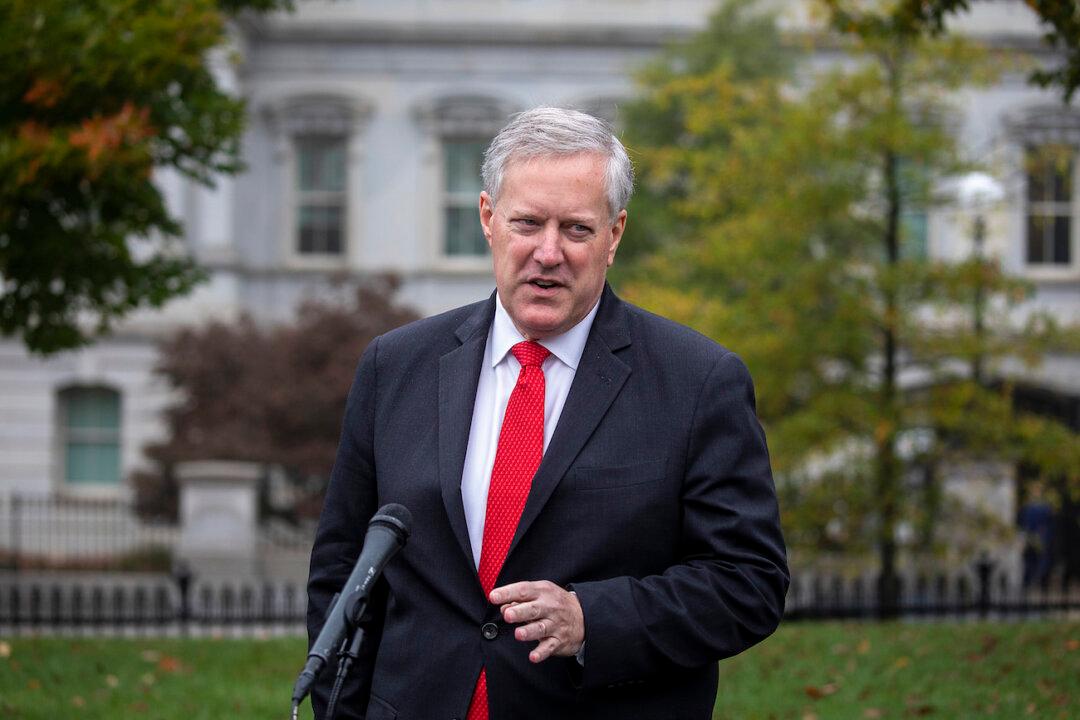Mark Meadows, former congressman and chief of staff to President Donald Trump, has asked a federal judge to prevent his arrest in Georgia, where President Trump, Mr. Meadows, and others face charges for attempts to reverse the results of the 2020 election.
Mr. Meadows joins former Department of Justice official Jeffrey Clark who similarly asked a federal judge on Aug. 21 to block his arrest on Friday, arguing that his status as a federal officer makes him immune from state-level charges.





